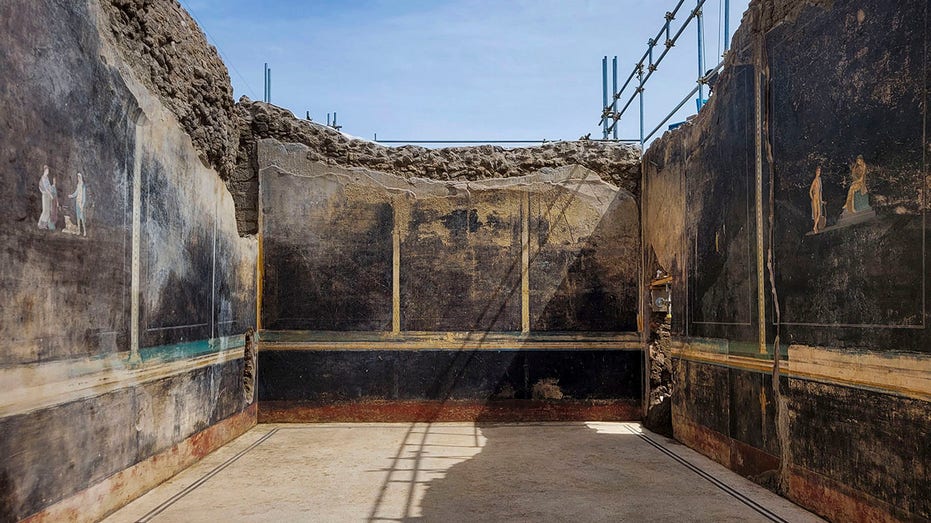Archaeologists make 'stunning' find of banquet hall in Pompeii
Archaeologists recently unearthed a "stunning" banquet room in Pompeii, a doomed city in Italy that was destroyed by a volcano in A.D. 79. The discovery was announced this week.

A group of archaeologists excavating the doomed city of Pompeii found quite the surprise earlier this week: a banquet hall complete with paintings inspired by the Trojan War.
The discovery was announced earlier this week, The Associated Press noted.
The banquet hall and its mosaic floor were uncovered during a project to help prevent further demise of the ruins of Pompeii.
Pompeii was a bustling city near Naples until the eruption of Mount Vesuvius in A.D. 79. The volcano destroyed the entire city, killing thousands — yet left it remarkably preserved.
The city sat under a layer of volcanic ash for centuries until it was re-discovered in the 18th century, says the website for the Smithsonian.
Since then, it has become a popular tourist destination and archaeological dig site.
Pompeii was named a UNESCO World Heritage Site in 1997, the UNESCO website says.
ARCHAEOLOGISTS UNCOVER HOARD OF ANCIENT SKELETONS PART OF 'COMPLEX FUNERARY SYSTEM'
The ruins of Pompeii is the world's only archaeological site that "provides a complete picture of an ancient Roman city," said UNESCO.
The newly discovered banquet hall was likely used for "refined entertaining," said Gabriel Zuchtriegel, director of the Pompeii archaeological park, according to the AP.
The room's black walls meant that smoke from oil lamps would be hidden, he also said.
The banquet hall is about 45 feet long and 18 feet wide.
It opens to a courtyard located near a staircase, the AP noted.
ARCHAEOLOGISTS EXCAVATE 700-YEAR-OLD BARCELONA BUILDING THAT ONCE HOUSED A CHOCOLATE FACTORY
The images painted on the walls include Helen of Troy, Apollo and Cassandra.
The paintings were likely meant to both entertain and to "provide conversation starters," the same source said.
Previously, excavations of Pompeii had focused on the "elaborately frescoed villas" belonging to the city's upper-class residents.
CLICK HERE TO SIGN UP FOR OUR LIFESTYLE NEWSLETTER
Recently, these newer excavations have centered on parts of the city where the middle class and servants lived.
The banquet hall was discovered during an excavation that was intended to make the Pompeii archaeological park more sustainable in the wake of climate change.
The Associated Press contributed reporting.
For more Lifestyle articles, visit www.foxnews.com/lifestyle.



